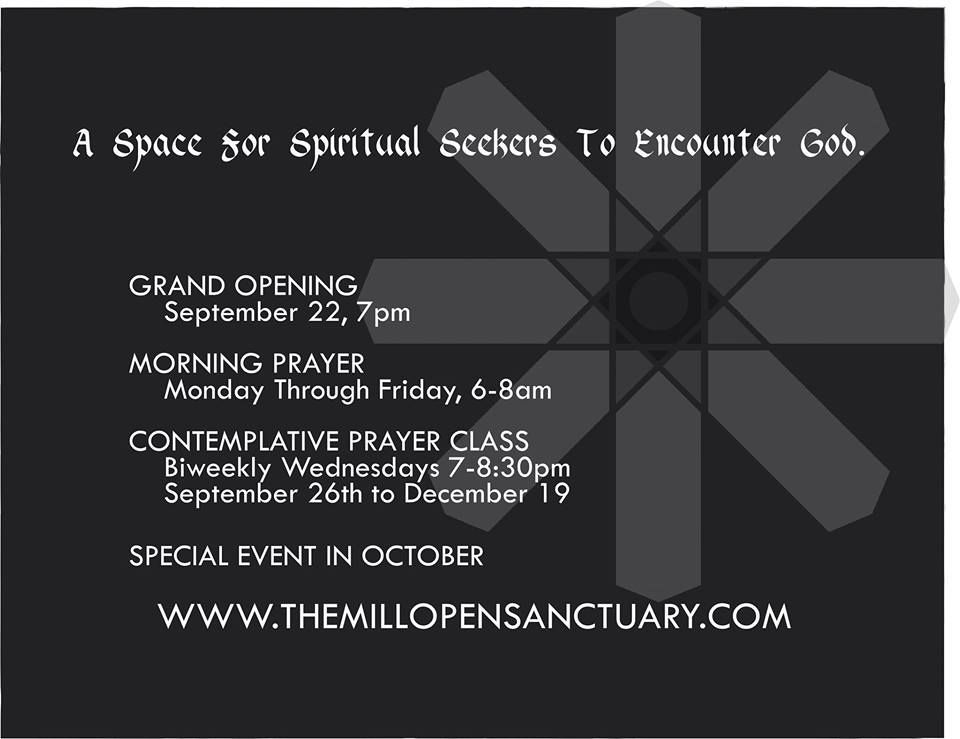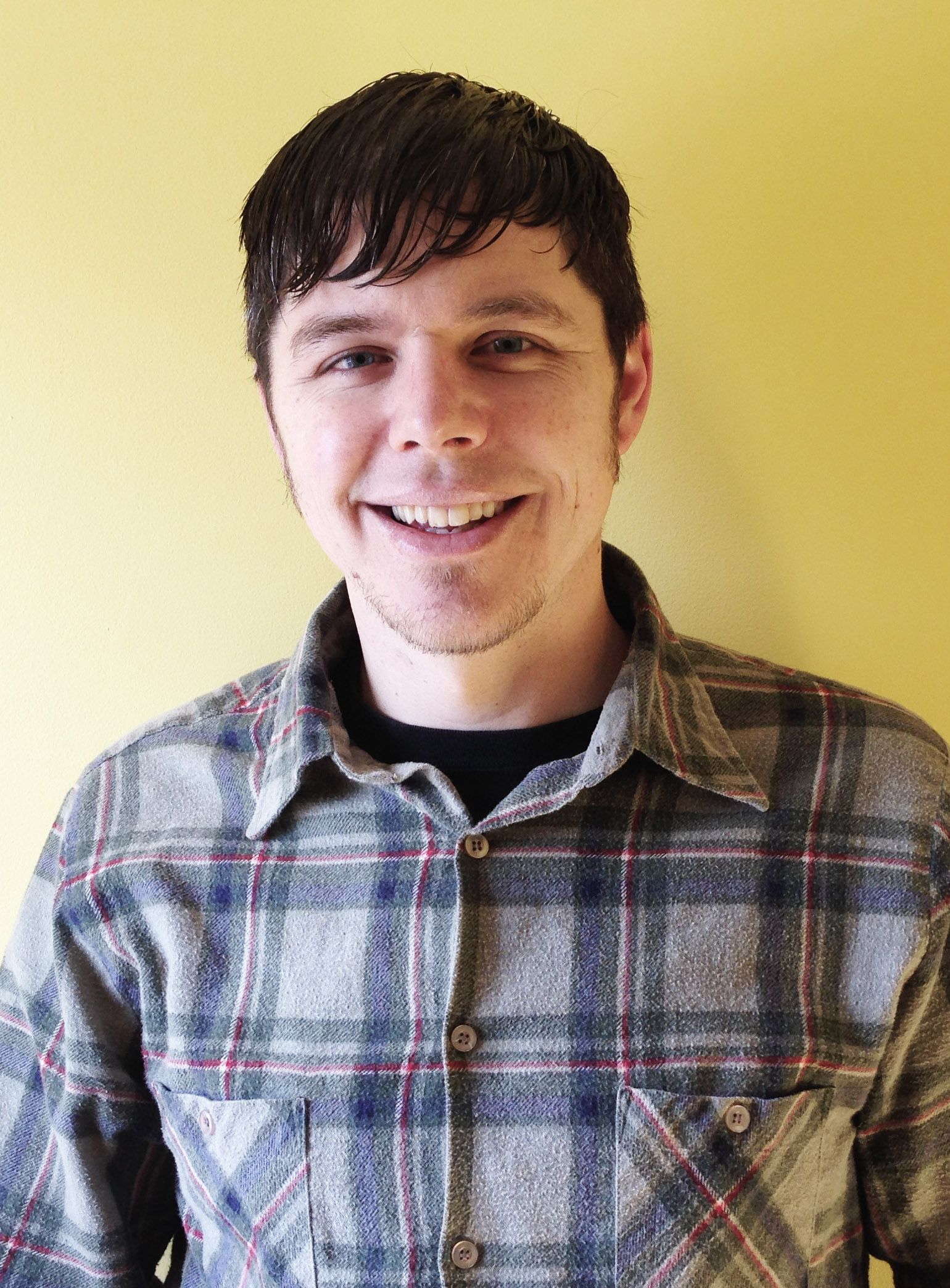In 2017, Redemption Church in Bristol, PA got a grant to research the topic of young adults and religion and after a number of interviews, a theme emerged: Young adults were open to God, but scared of the church. It got us thinking: “What would it look like to create a space where people could meet God, but there were no requirements for membership, beliefs, or behaviors?” In September, we opened The Mill Chapel , an open sanctuary space for the town of Bristol. The Mill is a storefront just off main street that is decorated in both simple and sacred aesthetics. Our initial offerings are basic: open prayer from 6 to 8 am and an evening contemplative prayer class. And while we have big dreams for classes, events, and workshops, our biggest dream is simply to have the space open as much as possible for anyone to come in.
Why open a prayer chapel in Bristol? Sometimes practice comes before belief. I’ve always been intrigued by the culture of AA, which asks people to pray even if they don’t believe. A weird thing happens when people do this. Quite often, people come to know God. When Jesus invites his disciples, he doesn’t first explain to them the Kingdom of God. Instead, he simply says, “Come follow me.” And it is only after they taste and touch the Kingdom of God that the disciples come to believe. Our hope is that someone could come in for prayer or silence or meditation and even if they don’t yet believe, they could meet the Living God.
Why open a prayer chapel in Bristol? Redemption has been working as missionaries in Bristol for 9 years now, forming relationships all over town. We’ve often found that Sundays are not a good point of invitation for those who are spiritual-but-not-religious. We wanted to create a middle space, something that is overtly spiritual, gets beyond the pleasantries and small talk, and yet, a place without the baggage that come with attending church.
Why open a prayer chapel in Bristol? Because Bristol, like anywhere else, needs prayer. One of the privileges of my life has been to visit churches and monasteries all over the world that are committed to prayer. There is a lightness and a joy that permeates the air. On mornings when I drive our kids to school, I drive past The Mill, look inside, and see that the candles are lit. Someone is praying for Bristol. And no matter how heavy the day feels, something of that lightness and joy comes to visit me. Bristol is being prayed for. It makes my heart happy.
The Mill is a missional experiment and we hope that many come to know and enjoy God through that place. But honestly, if all that ever happened at The Mill was that a bunch of Redemptionites got praying for Bristol, I bet God would do pretty good things with that. And since that is already happening, I would say the experiment is a success.









